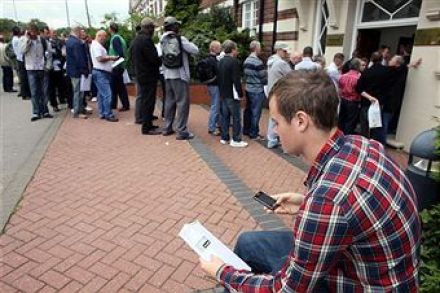Exclusive: Osborne’s jobless recovery
George Osborne was right to boast in the Commons that Britain has the “second highest rate of net job creation in the G7”. Coffee House recently pointed out that all of the increase is accounted for by foreign-born workers. But what if you narrow the definition to foreign nationals? We put in an information request to the Office for National Statistics and the below information came back. It is quite striking. Over the 12-month period to which Osborne refers, 90.1 per cent of the extra employment amongst the working-age population can be accounted for by an increase in foreign nationals working in the UK. Here are the figures. The phenomenon of pensioners returning to















